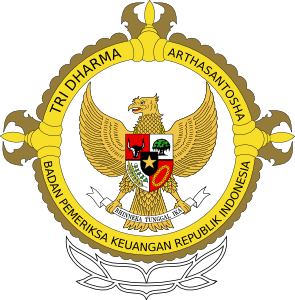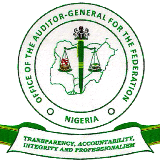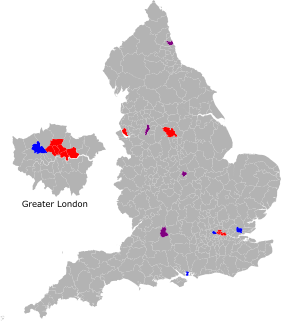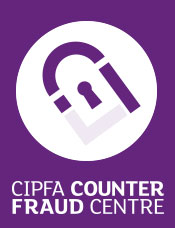 W
WThe State Supreme Audit is the supreme audit institution of the Republic of Albania, and as such is the highest institution of economic and financial control in the country. As an independent governing body it is subordinated only to the law and the constitution. Its mission is to contribute towards the good management of public finances, by conducting quality audits, reporting on the regularity and the effectiveness of the use of all state financial resources for the benefit of the state and its citizens.
 W
WThe Audit Board of Indonesia is a high state body which is responsible for evaluation of management and accountability of state finances conducted by the central Government of Indonesia, local governments, Bank Indonesia, state-owned enterprises, the Public Service Board, and institutions or other entities which manage state finances.
 W
WThe role of the Auditor General of Quebec is to aid accountability by conducting independent audits of Quebec provincial government operations. The office was created in 1868. Guylaine Leclerc is Quebec's current auditor general.
 W
WThe Australian National Audit Office (ANAO) is the supreme audit institution of Australia, functioning as the national auditor for the Parliament of Australia and Government of Australia. It reports directly to the Australian Parliament via the Speaker of the House of Representatives and the President of the Senate. Administratively, the ANAO is located in the Prime Minister and Cabinet portfolio.
 W
WThe Court of Audit of Belgium is a Belgian governmental institution established by article 180 of the Belgian Constitution. The Court of Audit is a collateral body of the Belgian Federal Parliament and exerts external control on the budgetary, accounting and financial operations of the Federal State, the Communities, the Regions, the public service institutions and the provinces. The task of the Court of Audit is defined in its organic law of 29 October 1846. This law gives the Court of Audit a large independence and a wide autonomy to perform its missions.
 W
WThe Tribunal de Contas da União is the Brazilian federal accountability office. It is tasked with assisting Congress in its Constitutional incumbency to exercise external audit over the Executive Branch. Its members, called ministers, are appointed by the National Congress and the President of Brazil. The TCU employs a highly qualified body of civil servants to prevent, investigate and sanction corruption and malpractice of public funds, with national jurisdiction.
 W
WThe Chamber of Audit is the state auditor of the Government of Bulgaria and directly subordinate of the National Assembly. It carries out external control of the financial resources and activities in the public sector.
 W
WThe Bundesrechnungshof is the supreme federal authority for federal audit matters in Germany. There are equivalent bodies at state level. The status of the Bundesrechnungshof, its members and its essential functions are guaranteed by the German Constitution, and regulated by other legislation. It is an independent judicial body, with around 600 employees. Its current President is Kay Scheller.
 W
WThe National Audit Office of the People's Republic of China (NAO) is the supreme audit institution in the People's Republic of China. It was established in 1983 according to the Constitution. It is a cabinet-level executive department of the State Council and under the leadership of the Premier.
 W
WA Comprehensive Annual Financial Report (CAFR) is a set of U.S. government financial statements comprising the financial report of a state, municipal or other governmental entity that complies with the accounting requirements promulgated by the Governmental Accounting Standards Board (GASB). GASB provides standards for the content of a CAFR in its annually updated publication Codification of Governmental Accounting and Financial Reporting Standards. The U.S. Federal Government adheres to standards determined by the Federal Accounting Standards Advisory Board (FASAB).
 W
WThe Office of the Comptroller and Auditor General of Bangladesh (C&AG) is the Supreme Audit Institution (SAI) of the country. Like the SAIs in many other countries across the world the institution is established by the Constitution of Bangladesh. This institute is responsible for maintaining accounts of the republic and audits all receipts and expenditure of the Government of Bangladesh, including those of bodies and authorities substantially financed by the government. The reports of the CAG are discussed by the Public Accounts Committee, which is a standing committee in the Parliament of Bangladesh.
 W
WThe Comptroller and Auditor General (CAG) of India is the Constitutional Authority in India, established under Article 148 of the Constitution of India. He is empowered to Audit all receipts and expenditure of the Government of India and the State Governments, including those of autonomous bodies and corporations substantially financed by the Government. The CAG is also the statutory auditor of Government-owned corporations and conducts supplementary audit of government companies in which the Government has an equity share of at least 51 per cent or subsidiary companies of existing government companies. The reports of the CAG are laid before the Parliament/Legislatures and are being taken up for discussion by the Public Accounts Committees (PACs) and Committees on Public Undertakings (COPUs), which are special committees in the Parliament of India and the state legislatures. The CAG is also the head of the Indian Audit and Accounts Department, the affairs of which are managed by officers of Indian Audit and Accounts Service, and has 43,576 employees across the country . In 1971 the central government enacted the Comptroller and Auditor General of India Act, 1971. In 1976 CAG was relieved from accounting functions.
 W
WThe Control Yuan is an independent investigatory and auditory agency of the government of the Republic of China on Taiwan. Designed as a hybrid of auditor and ombudsman by Taiwanese law, the Control Yuan holds the following powers:Impeachment — The Control Yuan has the power to impeach government officials. Successfully impeached cases then go to the Disciplinary Court of the Judicial Yuan for adjudication. Impeachment of the President and the Vice President of the Republic follows a different procedure and does not go through the Control Yuan. Censure — The Control Yuan also has the power to censure a government official. The censure is sent to the official's superior officer. Audit — The Executive Yuan (cabinet) presents the annual budget to the Control Yuan each year for audit.
 W
WThe Court of Accounts of Moldova is the supreme public external audit institution, according to the provisions of the Law of the Court of Accounts no. 261-XVI, dated 5 December 2008, and is the only state public authority that controls the formation, management and use of public financial resources and management of public property by carrying out external audit in the public sector, confirming the compliance of the Republic of Moldova with the international standards on the best public external audit practices.
 W
WThe Supreme Audit Office of the Czech Republic (Czech: Nejvyšší kontrolní úřad) – alternately known in English as the Supreme Control Office of the Czech Republic – is a "unique, independent constitutional entity to supervise the management of the state property and the state budget."
 W
WThe Defense Contract Audit Agency (DCAA) is an agency of the United States Department of Defense under the direction of the Under Secretary of Defense (Comptroller). It was established in 1965 to perform all contract audits for the Department of Defense. Previously, the various branches of military service were responsible for their own contract audits.
 W
WThe European Court of Auditors (ECA) is one of the seven institutions of the European Union (EU). It was established in 1975 in Luxembourg in order to improve EU financial management.
 W
WThe Court of Audit is the national French administrative court charged with conducting financial and legislative audits of most public institutions and some private institutions, including the central Government, national public corporations, social security agencies, and public services. The Court is essentially a cross between a court of exchequer, comptroller general's office, and auditor general's office in common-law countries.
 W
WThe U.S. Government Accountability Office (GAO) is a legislative branch government agency that provides auditing, evaluation, and investigative services for the United States Congress. It is the supreme audit institution of the federal government of the United States. It identifies its core "mission values" as: accountability, integrity, and reliability. It is also known as the "congressional watchdog".
 W
WThe Audit Commission (AC) is one of the oldest government departments of the Government of Hong Kong, known as Audit Department before July 1, 1997. The Director of Audit is appointed by the Chief Executive. The Director reports to the Chief Executive, not the Legislative Council. Its main functions are "to provide independent, professional and quality audit services to the Legislative Council and public sector organisations in order to help the Government enhance public sector performance and accountability in Hong Kong." According to the Audit Ordinance the Director of Audit “has wide powers of access to the records of departments”, “can require any public officer to give an explanation and to furnish such information as he thinks fit to enable him to discharge his duties” and “is not subject to the direction or control of any other person or authority in performing his duties and when exercising his powers under the Ordinance.”
 W
WThe INTOSAI Development Initiative is a body of the International Organization of Supreme Audit Institutions (INTOSAI) which supports capacity development of supreme audit institutions (SAIs) in developing countries. Founded in 1986, the organization was headquartered in Canada until 2001, when it moved to Norway. It is currently hosted by the Office of the Auditor General of Norway.
 W
WThe Board of Audit reviews government expenditures and submits an annual report to the Diet. Article 90 of the Constitution of Japan and the Board of Audit Act of 1947 give this body substantial independence from both cabinet and Diet control.
Audit Bureau of Jordan is an independent Government agency and a supreme audit institution which is responsible for auditing the ministries, public institutions, public departments, municipalities, co-operatives, labor unions, corporations where Government of Jordan has more than 50% of their shares, and any entity the Council of Ministers may entrust the Bureau to audit its accounts.
 W
WThe Commission of Audit is the auditor for the government of Macau to aid accountability by conducting independent audits of the government operations. The office has similar functions to auditors in other jurisdictions, but the Commissioner reports directly to the Chief Executive of Macau, not to Legislative Council of Macau and therefore lacks independence from political interference.
 W
WThe National Audit Department is an independent government agency in Malaysia that is responsible for carrying out the audits on the accounts of Federal Government, State Government and Federal Statutory Bodies as well as the activities of the Ministry/Department/Agency and Companies under the Federal and State Government.
 W
WThe Massachusetts State Auditor is a statewide elected office in the Commonwealth of Massachusetts responsible for conducting financial, performance, and technical assessments of state programs, departments, agencies, authorities, contracts, and vendors. The current State Auditor is Suzanne Bump (D).
 W
WNational Audit Office of Lithuania is the supreme audit institution in Lithuania, functioning as the independent auditor for the Parliament of Lithuania.
 W
WOffice of the Auditor General (OAGN) is a constitutional body and the supreme audit institution of Nepal. It derives its mandate from Article 241 of the Constitution of Nepal and Audit Act, 2075. The Auditor General is empowered to undertake audits of Office of the President and Vice-President, Supreme Court, Federal Parliament, Provincial Assemblies, Provincial Governments, Constitutional bodies or their offices, courts, the Office of the Attorney General and the Nepal Army, Nepal Police and Armed Police as well as of all other government offices and courts with due consideration given to the regularity, economy, efficiency, effectiveness and the propriety of government expenditures.
 W
WOffice of the Auditor General for the Federation (OAuGF) is a constitutional body and the Supreme Audit Institution of Nigeria.
 W
WThe Office of the Comptroller General of the Defence is a department of the Ministry of Defence of Spain that exercises the internal audit of the economic and financial management of the Ministry and of the public agencies dependent on it. Likewise, it is responsible for acting as the military notary in the form and conditions established by the laws and for advising in matters of its competence to the superior and directive departments of the Ministry. The Office is integrated in the Undersecretariat of Defence but it reports to the Comptroller General.
 W
WThe Commission on Audit, abbreviated as COA, is an independent constitutional commission established by the Constitution of the Philippines. It has the primary function to examine, audit and settle all accounts and expenditures of the funds and properties of the Philippine government.
 W
WThe Public Audit Act 2001 established the Office of the Controller and Auditor-General as an officer of the New Zealand Parliament and reformed and restated the law relating to the audit of public sector organisations.
 W
WThe rate-capping rebellion was a campaign within English local councils in 1985 which aimed to force the Conservative government of Margaret Thatcher to withdraw powers to restrict the spending of councils. The affected councils were almost all run by left-wing Labour Party leaderships. The campaign's tactic was that councils whose budgets were restricted would refuse to set any budget at all for the financial year 1985–86, requiring the government to intervene directly in providing local services, or to concede. However, all fifteen councils which initially refused to set a rate eventually did so, and the campaign failed to change government policy. Powers to restrict council budgets have remained in place ever since.
 W
WRigsrevisionen is the national audit agency of the Kingdom of Denmark and an independent institution of the Folketing.
 W
WThe Court of Exchequer was formerly a distinct part of the court system of Scotland, with responsibility for administration of government revenue and jurisdiction of adjudicate on cases relating to customs and excise, revenue, stamp duty and probate. In 1856 the Court of Session was designated as the Exchequer Court, which now carries out its judicial functions.
 W
WIn the United States, the Single Audit, Subpart F of the OMB Uniform Guidance, is a rigorous, organization-wide audit or examination of an entity that expends $750,000 or more of federal assistance received for its operations. Usually performed annually, the Single Audit's objective is to provide assurance to the US federal government as to the management and use of such funds by recipients such as states, cities, universities, non-profit organizations, and Indian Tribes. The audit is typically performed by an independent certified public accountant (CPA) and encompasses both financial and compliance components. The Single Audits must be submitted to the Federal Audit Clearinghouse along with a data collection form, Form SF-SAC.
 W
WThe Court of Audit of the Republic of Slovenia is the highest body for supervising state accounts, the state budget and all public spending in Slovenia. The Constitution of Slovenia further provides that the Court of Audit is independent in the performance of its duties and bound by the Constitution and law. The Court of Audit Act also defines that the acts with which Court of Audit exercises its powers of audit cannot be challenged before the courts or other state bodies.
 W
WThe Tribunal de Cuentas is the supreme governmental accounting body of Spain responsible of the comptrolling of the public accounts and the auditing of the accountancy of the political parties, in accordance with the Constitution and its Organic Law.
 W
WThe National Audit Office is a non-ministerial government department in Sri Lanka. Established in 1799, it is one of the oldest government departments in the country, and is responsible for auditing public organisations. These include all departments of Government, the Offices of the Cabinet of Ministers, the Judicial Service Commission, the Public Service Commission, the Parliamentary Commissioner for Administration, the Secretary-General of Parliament and the Commissioner of Elections, local authorities, public corporations and business or other undertakings vested in the Government under any written law.
 W
WThe Swedish National Audit Office is the agency responsible for oversight of the state finances through financial and performance-based audits of state agencies, state-owned companies and the Government of Sweden. It serves directly under the Riksdag and is therefore independent of the Cabinet. All state agencies are required to submit copies of their annual accounts and reports to this office for review.
 W
WThe Court of Accounts is the supreme governmental accounting body of Turkey responsible of the comptrolling of the public accounts and the auditing of the accountancy of the political parties, in accordance with the Constitution.
 W
WThe Audit Commission was a statutory corporation in the United Kingdom. The Commission’s primary objective was to appoint auditors to a range of local public bodies in England, set the standards for auditors and oversee their work. The Commission closed on 31 March 2015, with its functions being transferred to the voluntary, not-for-profit or private sector.
 W
WEvery year in the UK up to £49bn of public money is lost to fraud. Resources are stretched and fraudsters are increasingly sophisticated, making the public services more vulnerable than ever to criminal activity.
 W
WThe National Audit Office (NAO) is an independent Parliamentary body in the United Kingdom which is responsible for auditing central government departments, government agencies and non-departmental public bodies. The NAO also carries out value for money (VFM) audits into the administration of public policy.
 W
WAudit Wales is an independent public body which was established by the Welsh Parliament on 1 April 2005. It has overall responsibility for auditing on behalf of the Auditor General for Wales, across all sectors of government in Wales, except those reserved to the UK government.